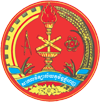About
1. Introduction
Southeast Asia is the home to the world’s most dynamic and fastest growing regions and the center of complex histories, vast inter-state, and intra-state diversities, and deeply rooted multidimensional challenges. As such, the Center for Southeast Asian Studies (CSEAS) of the Institute for International Studies and Public Policy (IISPP) aims to be a highly reliable and advanced hub of knowledge on Southeast Asian affairs to catalyze progress and advance prospects of positive integration, peace, and development. With its pool of high-caliber researchers, IISPP’s CSEAS aims to be an alternative to ad-hoc research, training, and policy dialogue arrangements with limited or short-lived national and regional impacts.
IISPP’s CSEAS embraces five main functions: research and capacity building, foreign language studies, policy dialogues, ASEAN knowledge hub, and outreach and networking. To put into perspective, the center aims to foster advanced, original, and rigorous research on complex topics and issues of high relevance to Southeast Asia, enhance knowledge production, and generate and disseminate research-based publications (CSEAS Book, the CSEAS Insight, the Cambodian Explorer, and CSEAS Policy Brief), which will be an alternative to many existing publications that tend to be largely empirical and descriptive in their accounts of topics. The center also intends to covert its well-refined theoretical, methodological, and empirical engagement into well-balanced and highly credible research-based insights and policy recommendations. In this connection, CSEAS’s research programs tend to be comprehensive and will be centered on 1. ASEAN Focus, 2. Regional Economic Studies, 3. Security, Political and Strategic Studies, 4. Socio-cultural Studies, and 5. Country Studies Program. In line with this, to maximize impacts, the center also aims to provide research capacity training, professional connectivity training, and foreign language training to policymakers, public servants, researchers, and relevant stakeholders.
As an apolitical research center and think-tank, the Center for Southeast Asian Studies at the Royal University of Phnom Penh also strives to enhance face-to-face and/or virtual research and policy dialogues by developing a pool of experts in Cambodia and in the Southeast Asian region to discuss and share their expertise to the public through workshops, lectures and seminars, conferences, booth camps, research expos and policy dialogues with Track I officials. IISPP’s CSEAS also aims to cultivate a research society through hosting, among others, research exchanges, fellowships, and internships; promoting research studies and mobility; and attracting, as far as, young research enthusiasts on Southeast Asian affairs to engage in research culture.
2. Vision and Objective
The Center for Southeast Asian Studies (CSEAS) aspires to be a leading Cambodian research center on ASEAN and Southeast Asia. To realize this vision, CSEAS aims at promoting awareness and understanding of ASEAN and the Southeast Asian region. In addition, CSEAS contributes to research and higher education development, academic and policy debates, and peace and sustainable development in Cambodia, the region, and beyond.
3. Roles and Functions:
To achieve the set vision and objectives, CSEAS is tasked with three strategic activities: 1. research and dissemination, 2. training and capacity building, and 3. the provision of services such as policy and risk assessment and consultancy. Particularly, the Center for Southeast Asian Studies (CSEAS) of the Institute for International Studies and Public Policy (IISPP) undertakes the following roles and functions:
- conduct research on ASEAN focus, regional economic studies; security, political and strategic studies; socio-cultural studies; and country studies program;
- coordinate and participate in research collaboration with local and international partners;
- publish books, journals, working papers, research reports, and other types of publications;
- organize seminars and workshops to disseminate the findings and knowledge from various research activities;
- offer short courses to strengthen the capacity of Cambodian and foreign trainees and students;
- participate in policy dialogues, policy formation, roundtable discussions, public lectures, media services, and other platforms;
- establish and expand research society and networks of Cambodian and foreign intellectuals and researchers; and
- conduct policy and risk assessment and other consultancy works.
4. Our Team
- Management
- Research Fellows
- Researchers
- Interns
- Supporting Staff
Contact Info

Director of CSEAS
- Phone: (+855)92 660 997
- Email: info.cseas@rupp.edu.kh
- Address: Russian Federation Boulevard, P.O. Box 416, Phnom Penh, Cambodia
Student Life

Foreign students who are interested in studying in Cambodia should first approach their national government. read more...
